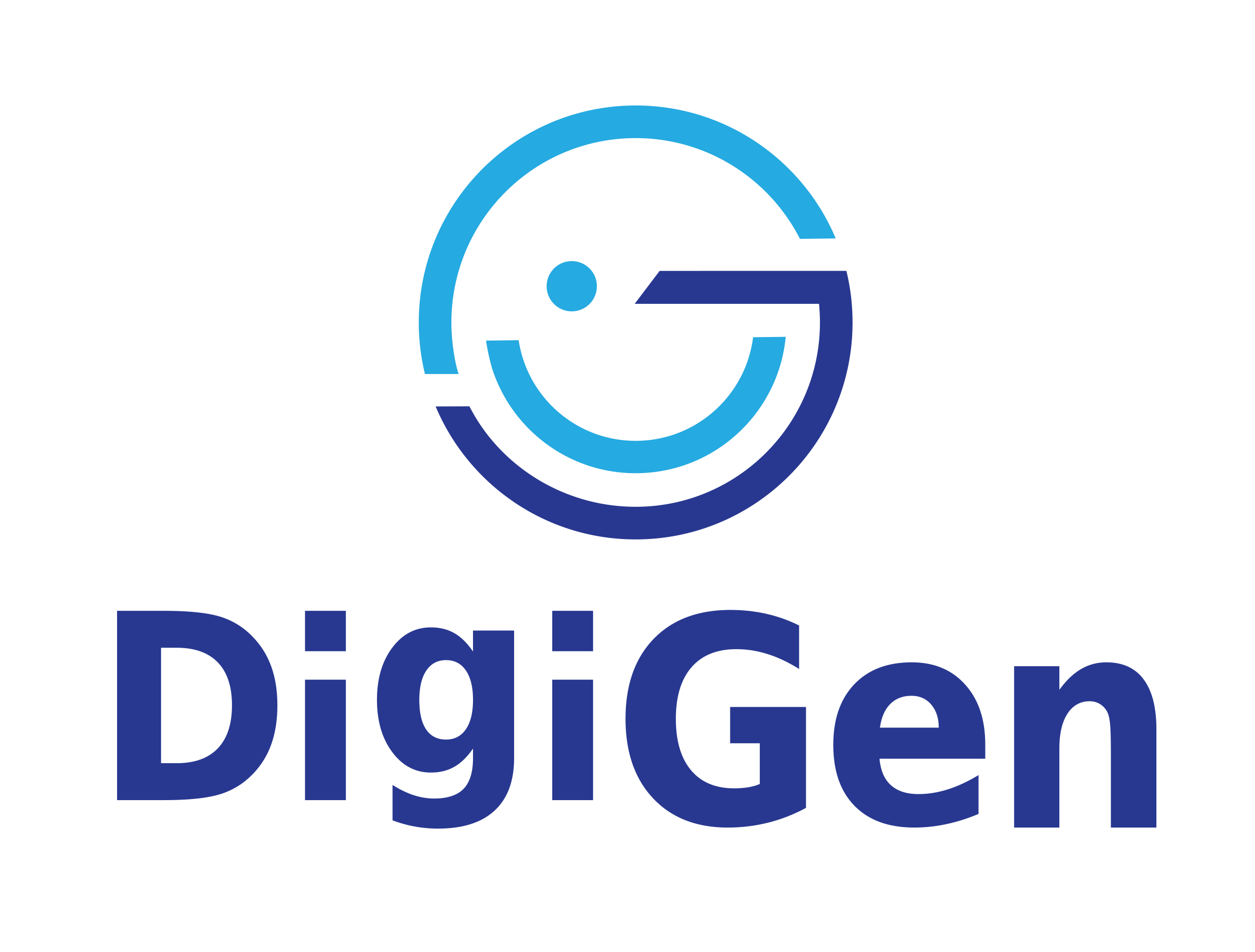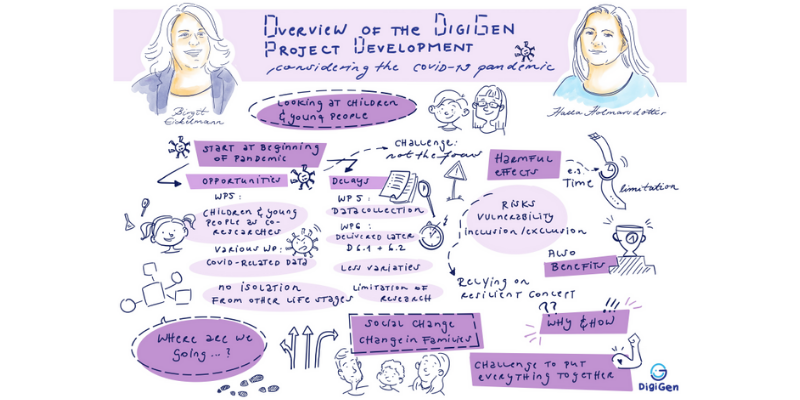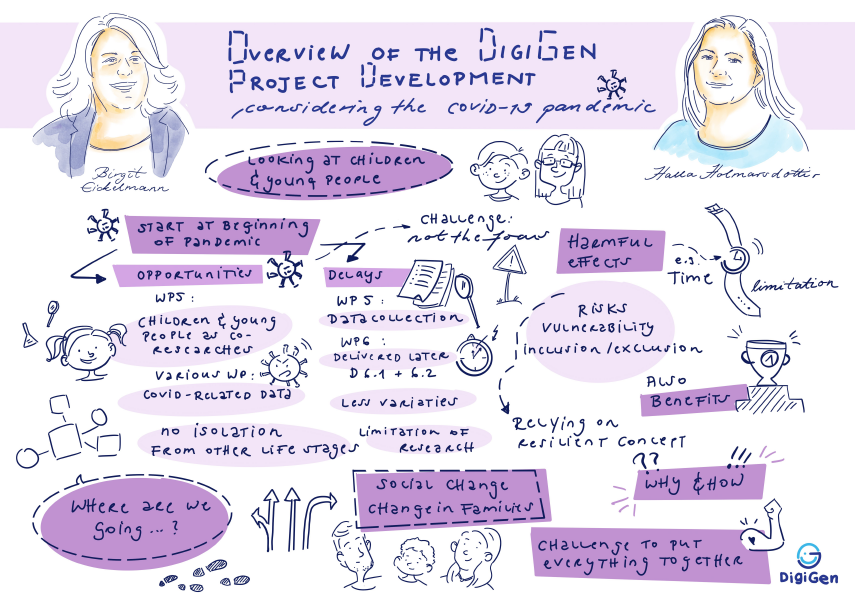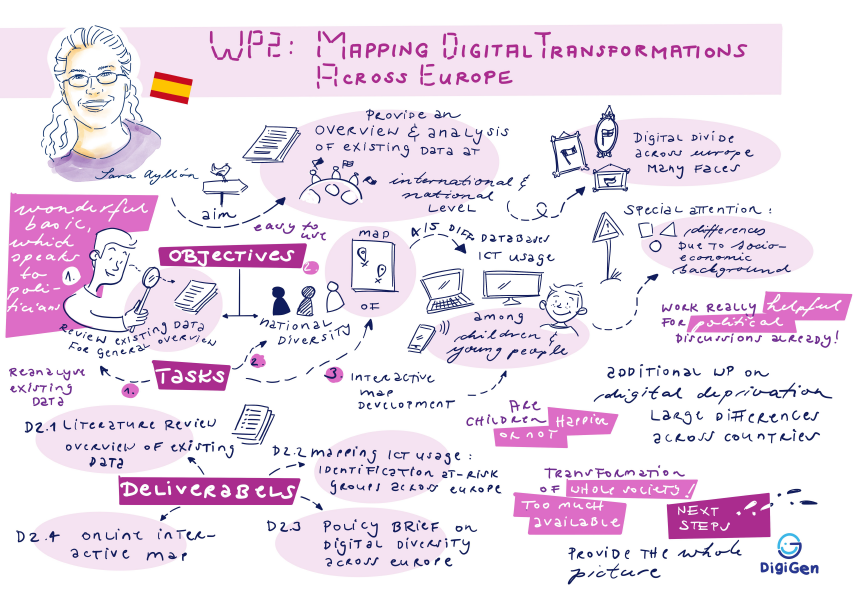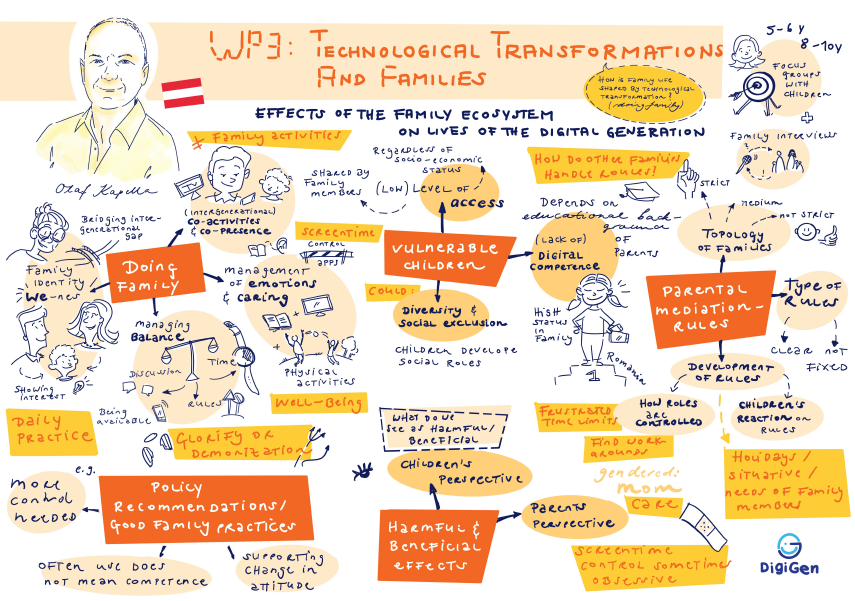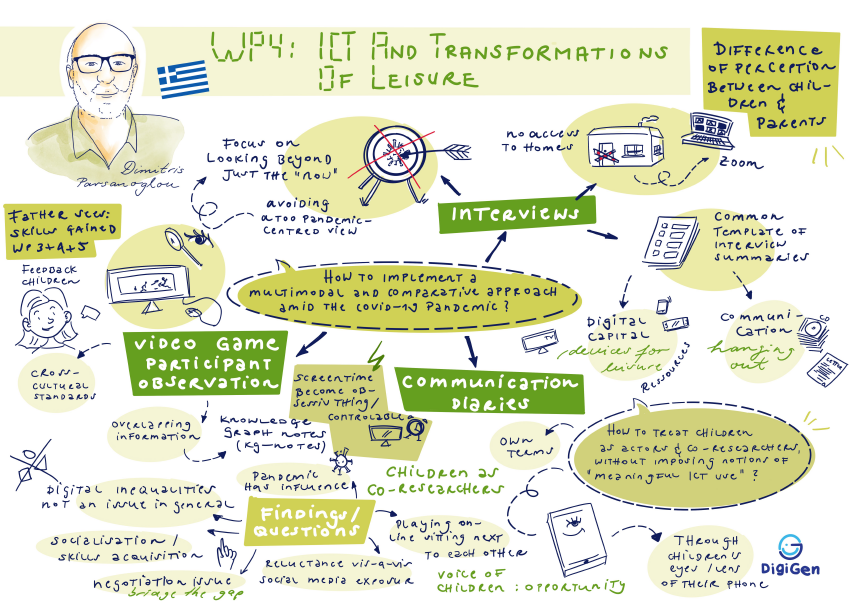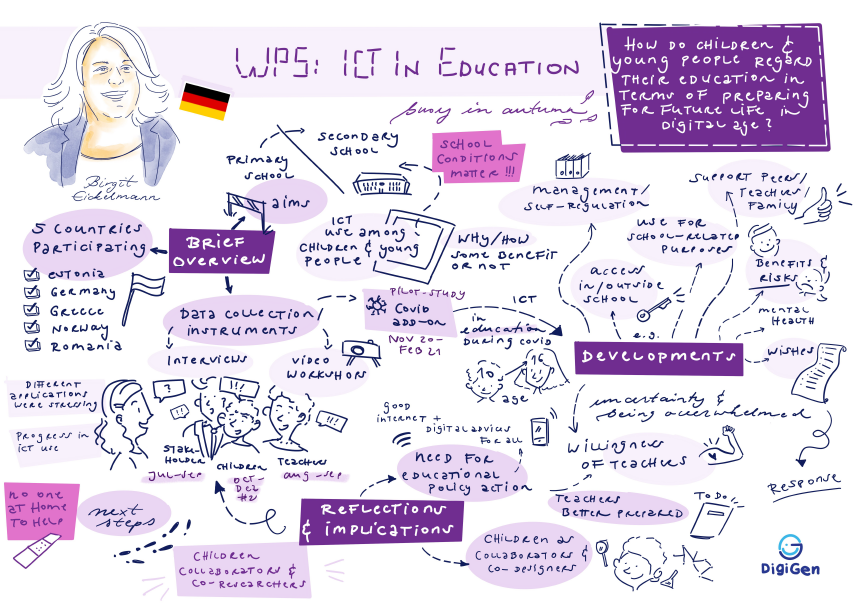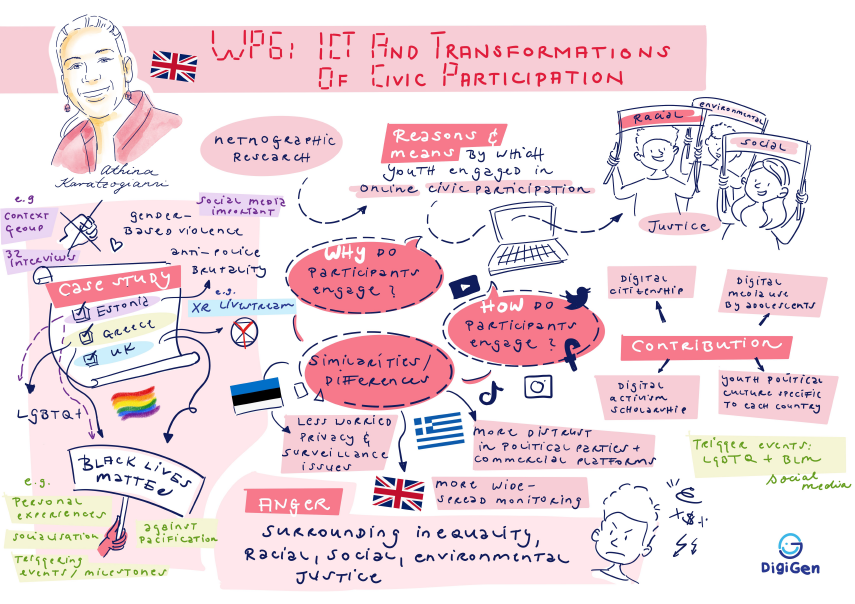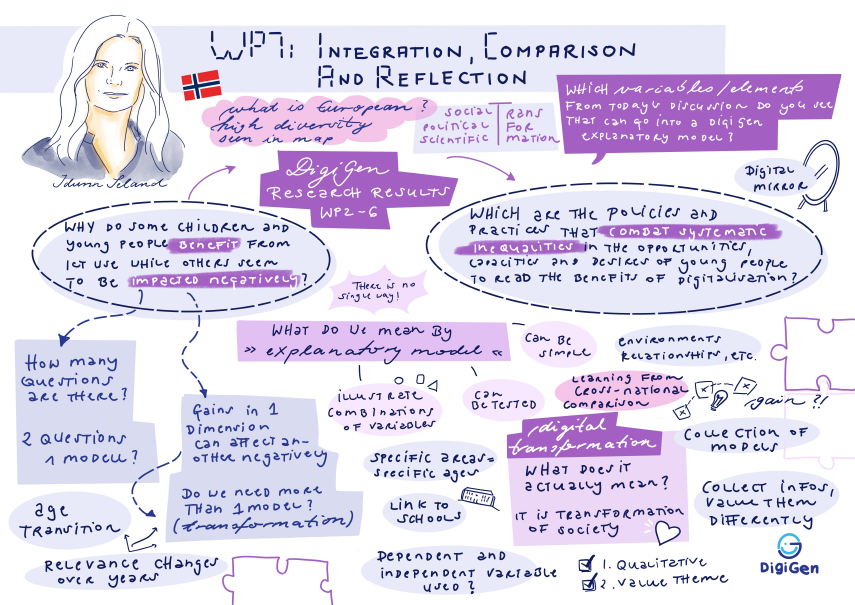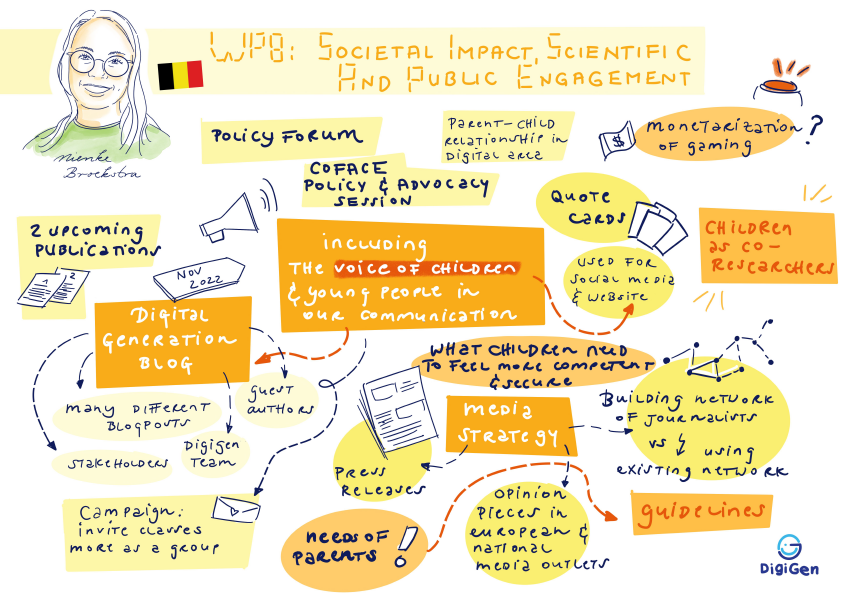The DigiGen team came together online on 2 and 3 September during their fifth consortium meeting hosted by the team members from the Paderborn University in Germany. The meeting encouraged an open exchange on data analysis and policy implications as the project approaches its last year.
Throughout the two-day meeting, the methods, analytical categories, common threads, and policy implications were discussed during various sessions focusing on different elements of the project, such as mapping of digital diversity across Europe, technological transformations and families, ICT and leisure time, ICT in education and ICT and civic participation. The researchers presented their recent publications, preliminary results, upcoming output and impact of the project. Most importantly, the project has intensified its work bringing the findings from the different research areas together and bridging the research from research questions to overall research findings. Findings of the different working slots were immediately brought together in sketch notes provided by the sketch note artist Melanie Gürtler who attended and reflected upon the meeting.
The DigiGen team invited its International Advisory Committee and all members of the National Stakeholder Committees of the DigiGen countries to join and provide feedback as the project aims to be a continuous and inclusive process of knowledge exchange and joint knowledge production between stakeholders and the researchers. The International Advisory Committee consists of a small group of international figures in the field who provide independent advice and expertise to the consortium. The national stakeholders meet regularly and discuss the progress and give advice on the general direction of the project and will continue supporting the project.
Participants of the Paderborn meeting addressed the need for an overarching research approach and clarity on the connection between the different focus areas of the project. Other points that were intensively discussed included different ways to develop an DigiGen explanatory model that will inform relevant stakeholders, the conceptualisation of terms central to DigiGen such as transformation, benefits and generation, and the difference between perception of benefits and safety between parents and children.
All presentations, discussions as well as the feedback received during the meeting will be taken up in the coming months while the project works to ensure that the research findings connect to recommendations that will support the digital generation’s transformation across Europe. DigiGen’s next consortium meeting is planned for late November 2021 and will be hosted by the team from the University of Girona in Spain and will continue the discussion on most relevant findings from the different research areas.
